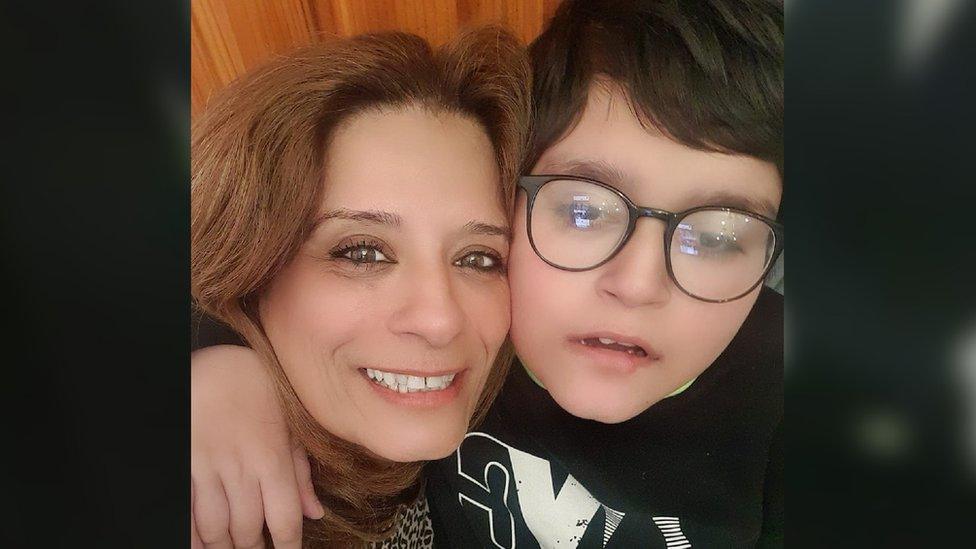Sheffield Children's Hospital apologises over 'failings' in boy's care
- Published

Falak Zeb's son Daniyal was born with a genetic disorder
A hospital trust has apologised to a mother from Sheffield after an investigation found failings in the care provided to her son.
Falak Zeb, complained about her son Daniyal's treatment at Sheffield Children's Hospital, where he spent more than a month, including a week in intensive care in 2019.
She said: "You come to hospital to get better, not worse".
In a letter, the hospital apologised "for the distress and upset".
Mrs Zeb said her son had been born with methylmalonic acidemia - a genetic disorder where the body cannot break down certain parts of proteins and fats - as well as additional sight and learning difficulties,
She said that for 11 years she had managed his condition with a carefully designed home care plan, but, in August 2019, he had started repeatedly vomiting and she had taken him to hospital.
He remained there from 18 August until 23 September, and she said that during his time in hospital his condition worsened and he was moved to the intensive care unit.
She said watching her son deteriorate had been the hardest experience of her life and felt that nobody had provided her with any comfort or encouragement.
"Nobody said your son will be ok," she said.
"I stayed in ICU for days. As a Muslim I started to prepare for Daniyal's funeral. I contacted family and friends to prepare to say goodbye."
But, after a new course of treatment was prescribed, Daniyal began to show signs of improvement and was eventually well enough to go home.
"It was a miracle that my child came home," Mrs Zeb said.
'Sincere apologies'
She lodged a complaint about the care he received in the hospital and, four years on, an investigation into her concerns by the Parliamentary and Health Service Ombudsman has ruled there were failings, including treating her son with sodium bicarbonate for too long and not inserting a central venous catheter sooner.
The report concluded that "on the balance of probability Daniyal would not have become as ill as he did or been in hospital as long as he was had these failings not happened".
Mrs Zeb said: "You have to become an expert when your child has a rare disease. For 11 years I successfully managed my child's disease on my own, with special feeds all through the day and night.
"[When he went into hospital] I felt like I'd let my son down. You come to hospital to get better, not worse."
She added that after the long "fight for justice" she felt "drained, tired and burnt out" but said she was "grateful to the Ombudsman for going and looking at the failures".
In a letter to Mrs Zeb, Ruth Brown, the Chief Executive of Sheffield Children's NHS Foundation Trust, offered her "sincere apologies for the distress and upset you experienced during this episode and subsequently as you pursued your complaint".
In a further statement, Jeff Perring the Trusts' Executive Medical Director: "Sheffield Children's acknowledges and accepts responsibility for each of the points raised by the Parliamentary and Health Service Ombudsman report.
"We have developed an action plan to address the issues raised, highlighting the learning Sheffield Children's has taken from the complaint and outlining what we will do differently in the future, which we are putting into practice."

Follow BBC Yorkshire on Facebook, external, X (formerly Twitter), external and Instagram, external. Send your story ideas to yorkslincs.news@bbc.co.uk, external.